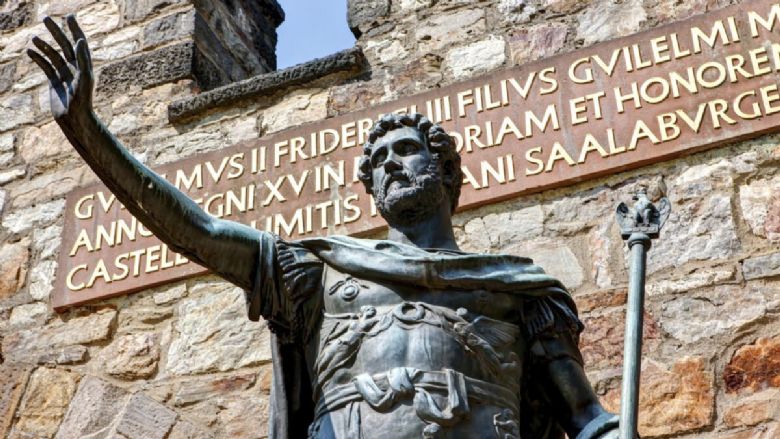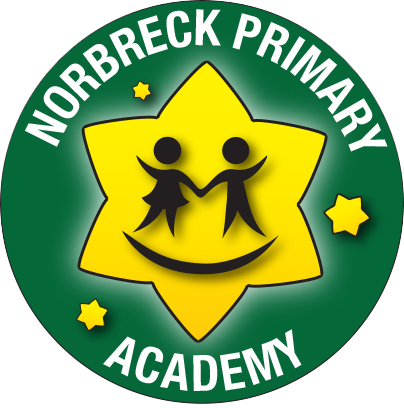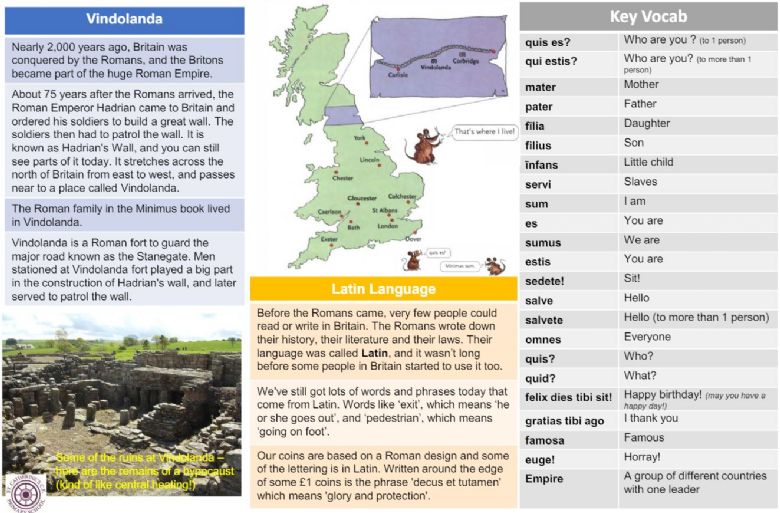Latin - Years 3 & 4
Years 3 and 4 Latin
"NON SCHOLAE SED VITAE DISCIMUS"
We learn, not for school, but for life.
Our Intent

Intent
At Norbreck Primary Academy, the intent of introducing Latin into our curriculum is to provide our pupils with a rich and diverse education that fosters a deep understanding and appreciation of language over time. Through the study of Latin, we aim to develop our pupils' linguistic skills, enhance their cognitive abilities, and connect them with the roots of language. Latin education enables children to understand more complex vocabulary in their everyday lives and learning, giving them more opportunities to become curious and inquisitive learners.
Our intent is to inspire our pupils with a love for learning and an intellectual curiosity that extends beyond the classroom. By teaching Latin, we seek to equip our pupils with a foundation that strengthens their grasp of English grammar, spelling and vocabulary (etymology) and cultivates a sense of global cultural awareness.
As Norbreck pupils move on to their next stage of education, Latin gives them a strong base for secondary school languages, enabling them to become effective communicators. In line with the National Curriculum children will be taught to:
- listen attentively to spoken language and show understanding by joining in and responding
- explore the patterns and sounds of language and link the spelling, sound and meaning of words
- speak in sentences, using familiar vocabulary, phrases and basic language structures
- read carefully and show understanding of words, phrases and simple writing
- appreciate stories, songs and myths in the language
- broaden their vocabulary and develop their ability to understand new words that are introduced into familiar written material, including through using a dictionary
- write phrases from memory, and adapt these to create new sentences, to express ideas clearly
- describe people, places, things and actions orally and in writing
- understand basic grammar appropriate to the language being studied, including (where relevant): feminine, masculine and neuter forms and the conjugation of high-frequency verbs; key features and patterns of the language; how to apply these, for instance, to build sentences; and how these differ from or are similar to English.
Implementation
The implementation of our Latin curriculum is carefully designed to engage pupils of all abilities and learning styles. We deliver Latin lessons that are interactive, immersive, and tailored to suit the diverse needs of our students. Our skilled and dedicated teachers utilise a variety of teaching methods, including storytelling, games, songs, and role-playing, to make the learning experience enjoyable and meaningful.
We integrate Latin into our wider curriculum by drawing connections between Latin vocabulary and English words, exploring classical myths and literature. Through cross-curricular links, our pupils deepen their understanding of history, geography, and literature, while reinforcing their Latin language skills in a meaningful context.
Our school recognises the importance of ongoing professional development for our staff to ensure high-quality Latin provision. Regular training sessions, commitment from school leaders, support from “Classics for All” and Blackpool Sixth Form College, collaborative planning meetings enable our teachers to continuously improve their subject knowledge, pedagogical skills, and assessment practices in line with best practices in Latin education.
Furthermore, we enhance our Latin provision through the use of Minimus – Starting out in Primary Latin by Barbara Bell, an engaging Latin scheme of work specifically designed for primary school children. The focus on key knowledge that children develop and progress with as they progress through Key Stage 2. The scheme follows a cycle of lessons for each topic which plans for progression and depth. The inclusion of 'Minimus' enriches our curriculum with its interactive stories, colourful illustrations, and fun activities, making the learning of Latin accessible and enjoyable for all our pupils.
Impact
The impact of our Latin curriculum is evident in the broad and balanced development of our pupils. Through regular assessments, feedback, and monitoring, we track the progress of every child and adapt our teaching strategies to address individual learning needs and challenges. Our pupils demonstrate increasing proficiency in Latin vocabulary, grammar, and syntax, as evidenced in their written and spoken communication skills.
The study of Latin has a positive impact on our pupils' attainment in other subjects, particularly English, where they show improved reading comprehension and linguistic accuracy. Additionally, our pupils develop a sense of cultural appreciation and linguistic diversity, as they engage with classical texts, explore ancient traditions, and reflect on the legacy of Latin in modern society.
Furthermore, the study of Latin contributes to our pupils' personal growth and well-being by fostering resilience, confidence, and a sense of accomplishment. Through mastering a challenging language like Latin, our pupils develop essential skills such as perseverance, problem-solving, and self-discipline, which are invaluable for their future academic and personal success.
In conclusion, our Latin curriculum stands as a testament to our school's commitment to providing an outstanding education that nurtures the intellectual, cultural, and personal development of every child in our care. By instilling a passion for Latin and classical languages, we empower our pupils to excel academically, embrace diversity, and become lifelong learners with a global perspective.
Cultural Capital
- We are proud to have achieved a national teaching award for outstanding achievement in introducing classics (2023).
- Immersing children in Roman life through creative, practical activities such as writing on a wax tablet, playing Roman games, role playing Roman soldiers, food tasting and Lego architecture.
- Roman visitor puts the children through their paces.
- Children enjoy dressing up as a Roman soldier.
- Links to modern literature such as Harry Potter and creating our own Latin spells.
- Links with Classics for all, Blackpool Sixth Form College and other local primary schools.
- Study of Greek myths which aid our understanding of art and literature.
- Through drama sessions, we aim to improve children’s etymology and oracy skills.

Latin at Norbreck
Latin is currently taught to Year 3 and 4 classes (French is to be taught to Year 5 and 6), using the Minimus Scheme. Year 3 start with chapter one, which introduces the children to a family who lived at Vindolanda. As the lessons progress we learn more about the family and their role in the Roman army. Lessons focus on translation of Latin cartoons, and also begin to learn about Latin verbs (including verb endings), adverbs, adjectives and how Latin forms 80% of the English language and others such as French and Italian.
‘Over 90% of the vocabulary of academic texts in school has Latin and Greek origins… teaching etymology has positive implications for learning and cracking the academic code of school…’
Alex Quigley ‘Closing the Vocabulary Gap'
Quotes from our children
“I speak to my dad in Latin now!”
“I love everything about it and it’s fun. It’s fascinating how people lived in the past."
“It helps my understanding of harder words.”
“Finding out new words is fun!”
“I actually really like the stories and the Greek myths.”
“We talk about cool things like Hadrian’s Wall!”
"I really enjoy Latin; it is difficult to translate but I can see how it adds to our English work and SPAG."
"Finding out new words is fun!"
Gallery





